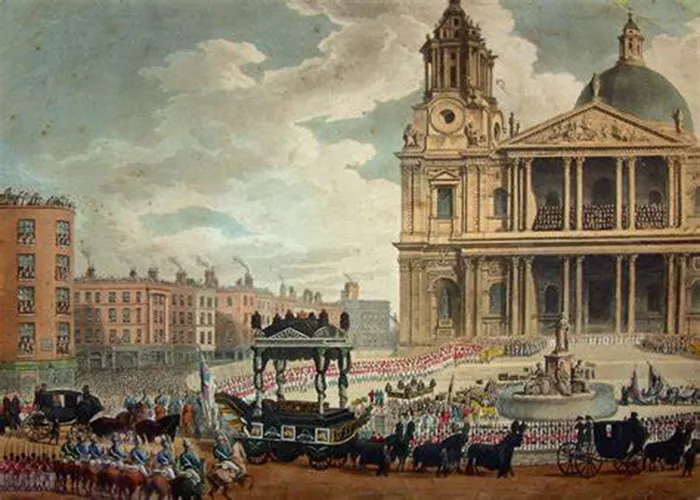January 9 has been a significant date in British history, marked by various notable events from different eras. This article will explore key occurrences on this day, providing detailed accounts of their implications and historical contexts.
What Happened on January 9 in British History?
1. The Birth of Philip Astley (1742)
On January 9, 1742, Philip Astley was born in Newcastle-under-Lyme. He is often regarded as the father of the modern circus. Astley initially trained as a soldier and later became an equestrian performer. In 1768, he opened the first modern circus in London, where he combined horse riding with theatrical performances, creating a unique entertainment experience that captivated audiences.Astley’s circus featured not only equestrian acts but also acrobats, clowns, and other performers. His innovative approach led to the establishment of permanent circus venues across Europe, significantly influencing the evolution of circus arts. His legacy continues to be felt today, as many modern circuses still follow the format he popularized.
2. The Burial of Lord Nelson (1806)
Another significant event occurred on January 9, 1806, when Admiral Horatio Nelson was buried at St. Paul’s Cathedral in London. Nelson was a prominent naval commander known for his leadership during the Napoleonic Wars and his pivotal role in the Battle of Trafalgar in 1805. His death during this battle marked him as a national hero.The funeral procession for Nelson was grand and solemn, reflecting his status as one of Britain’s greatest military figures. Thousands lined the streets to pay their respects as his body was transported from Greenwich to St. Paul’s Cathedral. The ceremony included military honors and was attended by notable figures of the time, solidifying Nelson’s legacy in British history.
3. The Introduction of Income Tax (1799)
On January 9, 1799, income tax was introduced in Britain by Prime Minister William Pitt the Younger. This decision was primarily motivated by the need to fund military efforts during the ongoing Napoleonic Wars. The initial tax rate set was two shillings in the pound.This introduction marked a significant shift in British fiscal policy and governance. It established a precedent for taxation that would evolve over time into the complex tax system used in modern Britain. Income tax became a crucial revenue source for the government, enabling it to finance various public services and military expenditures.
4. The Trial Against Joan of Arc Begins (1431)
On January 9, 1431, the trial against Joan of Arc commenced in Rouen, France. Although this event took place outside of Britain, it had profound implications for British history due to its connection to the Hundred Years’ War between England and France.Joan of Arc, a peasant girl claiming divine guidance, played a critical role in rallying French forces against English occupation during the war. Her capture by Burgundian forces and subsequent trial were politically motivated attempts to discredit her and undermine French morale. Joan was ultimately executed on May 30, 1431, but her legacy as a national heroine of France has persisted throughout history.The trial highlighted the complexities of warfare during this period and showcased how figures like Joan could influence national identity and sentimen.
5. Ernest Shackleton’s Nimrod Expedition (1909)
On January 9, 1909, British explorer Ernest Shackleton led his Nimrod Expedition to Antarctica and planted the British flag just 112 miles from the South Pole—further than anyone had previously reached at that time. This expedition aimed to explore uncharted territories and conduct scientific research.Shackleton’s journey faced numerous challenges including extreme weather conditions and harsh terrain. Despite not reaching the South Pole, his achievements during this expedition contributed significantly to polar exploration and inspired future expeditions. Shackleton’s leadership and determination have become legendary within exploration circles.
6. Sir Anthony Eden Resigns as Prime Minister (1957)
On January 9, 1957, Sir Anthony Eden resigned from his position as Prime Minister due to health issues after serving for one year and 279 days. Eden’s tenure was marked by significant events such as the Suez Crisis in 1956, which severely damaged his reputation and that of his government.Eden’s resignation highlighted political instability within Britain during this period post-World War II when leaders faced immense pressures both domestically and internationally. His departure paved the way for Harold Macmillan to take over as Prime Minister.
7. Alexander Fleming’s Penicillin Breakthrough (1929)
On January 9, 1929, Alexander Fleming successfully treated an infection using penicillin broth at St Mary’s Hospital in Paddington, London. This groundbreaking discovery would eventually revolutionize medicine by introducing antibiotics that could effectively combat bacterial infections.Fleming’s work laid the foundation for modern antibiotic therapy and saved countless lives over subsequent decades. His discovery exemplified how scientific research could lead to significant advancements in healthcare and public health.
Conclusion
January 9 has witnessed numerous pivotal moments throughout British history that have shaped its cultural, political, and scientific landscapes. From Philip Astley’s contributions to entertainment through modern circus arts to Alexander Fleming’s medical breakthroughs with penicillin, each event reflects broader themes of innovation and change within society.These historical occurrences not only mark important milestones but also serve as reminders of how individual actions can resonate through time—impacting future generations across various fields including politics, science, exploration, and culture. As we reflect on these events each year on January 9, we gain insights into Britain’s rich historical tapestry that continues to evolve today.
Related Topics:

